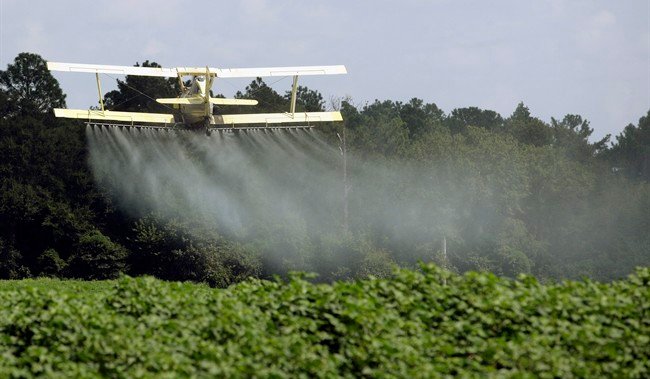The co-chair of Canada’s scientific advisory committee has resigned his post over concerns about a lack of transparency and scientific oversight in pesticide management.
Dr. Bruce Lanphear, a health sciences professor at Simon Fraser University, stepped down as the co-chair of the Health Canada scientific advisory committee on pest control products on June 27.
In his three-page resignation letter, Lanphear said he worries the committee, and his role as co-chair, “provides a false sense of security” that Health Canada is protecting Canadians from toxic pesticides.
“Based on my experience over the past year, I cannot provide that assurance,” he wrote in the letter to the director general of the Pest Management Regulatory Agency, an arm of Health Canada.
The committee gives Health Canada independent scientific advice on the health and environmental risks of pesticides, and does evaluations for new products and reviews.
It launched in July 2022 as part of a reform effort to improve transparency at the regulatory agency and has so far met five times.
Lanphear said the table of scientists had a more limited role and scope of work than the agency’s other advisory board, the pest management advisory council, which includes members of the pesticide industry.
Given the wider role of industry advisers, he wrote he had “little or no confidence” the science committee could help the agency “become more transparent or assure that Canadians are protected from toxic pesticides.”
In a statement, Health Canada said the Pest Management Regulatory Agency takes its role as a regulator seriously and the pesticide review process “remains fully rooted in science.”

The two advisory committees have different roles, the department said. While the science table is expected to give scientific and technical advice to help the agency make evidence-based decisions, the pest management advisory council advises the health minister on policies and issues related to pest management.
“This is a council of people whose interests and concerns are affected by this act and currently include pesticide manufacturers, growers, environmental and health groups, and individuals from academia or with relevant expertise,” the department said.
The Pest Management Regulatory Agency takes the advice of both committees into consideration but is responsible for all decisions.
Lanphear said he struggled to get certain data and answers from Health Canada staff about contentious products and how the department monitors exposure to toxic pesticides.
In one example, he said he asked how Health Canada uses biomonitoring studies – which look at human exposure to chemicals – in its decision making, but never received an “adequate answer.”


